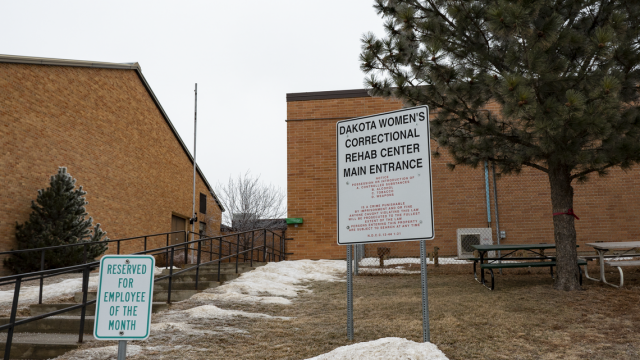House Lawmakers Seem More Concerned About Economic Development Than Fair Treatment for Female Prisoners

If we ever needed a measuring stick for just how thoroughly addled by parochialism state politics are, consider the state House punting this week on legislation to fix an offensive disparity in treatment between male and female prisoners in North Dakota’s corrections system.
In his executive budget Governor Doug Burgum included funding to shuffle some of the state’s prison facilities, moving women at the Dakota Women’s Correctional and Rehabilitation Center in New England to a facility in Bismarck which currently houses men. Those male prisoners, in turn, would be moved to a facility in Jamestown.
This move is backed by state corrections head Leann Bertsch – whose excellent work reforming our corrections system is not getting nearly enough attention – and the need for it is palpable. While the changes for male prisoners have been garnering national attention, conditions for female inmates have been lagging.
The disparity in treatment is so severe state officials tell me we’re ripe for a lawsuit.
Bertsch and Burgum want to fix that, and they’re trying to get the Legislature to come along for the journey.
But shortsighted lawmakers are concerned about something which shouldn’t matter at all. Namely, economic development. As if we build jails to create jobs and drive commerce.
This week the state House voted to on legislation not to act on this issue but to study it. Which is a thing lawmakers do with a sticky issue they don’t really want to be on record saying no to, but they really don’t want to say yes to either.
And what needs to be studied? The economic impact of closing down the facility in New England:
However, another concern by [Hettinger County Sheriff Sarah] Warner and others in Hettinger County are about the job losses in New England, although one consideration gaining steam and supported by a committee chairman, Rep. Jon Nelson, R-Rugby, was to keep the New England facility open and housing about 100 minimum security male inmates there with a focus on job training.
However, Warner said most of the employees are women and if men were to be moved there, it would require a big change.
At first blush you wouldn’t think this would be an issue. After all, New England is a small place, and most of the lawmakers in the state House represent districts from there.
But the pernicious reality about parochialism is that, in order to protect the government institutions and spending programs in your district, you have to support those same things in the districts your colleagues represent. Even if you might be inclined to vote against it based on policy considerations.
It’s horse trading, pure and simple, and a hurdle to efficacious policy.




